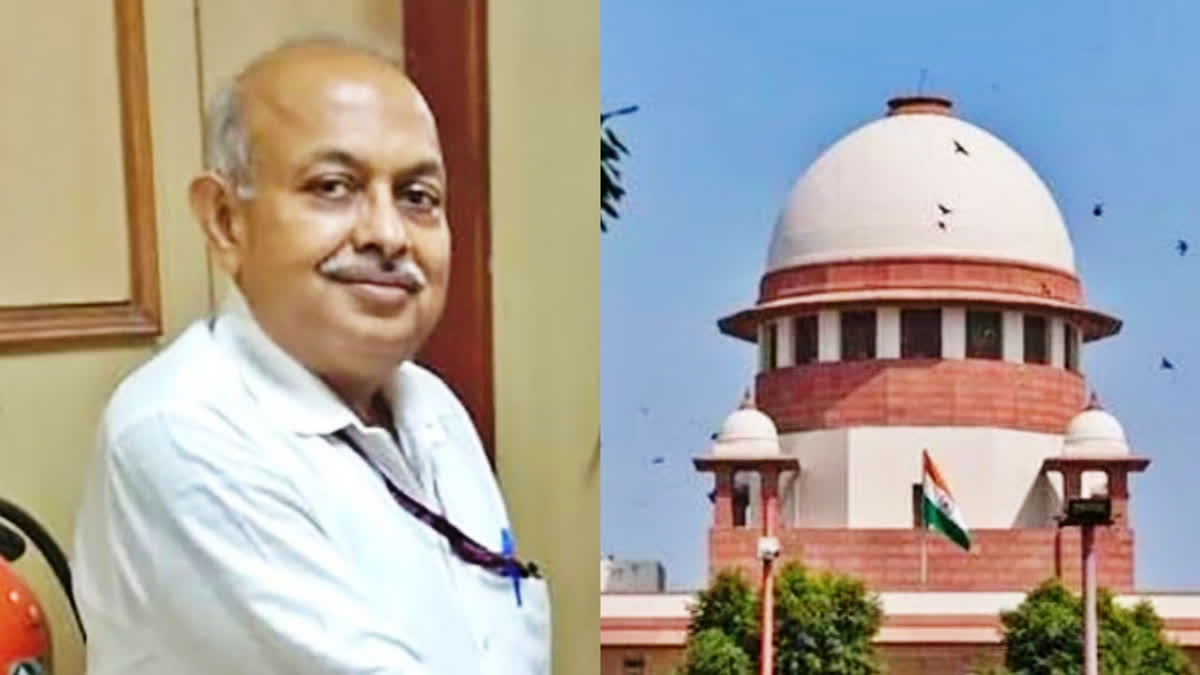New Delhi: The Supreme Court Tuesday said the back-to-back service extensions granted by the central government to Enforcement Directorate (ED) director Sanjay Kumar Mishra were “illegal and not valid in law”. However, the top court allowed Mishra to continue in office till July 31, 2023, “in order to ensure the transition to be smooth in the larger public interest”.
A bench comprising justices B. R. Gavai, Vikram Nath, and Sanjay Karol said: “The impugned orders dated 17th November 2021 and 17th November 2022 granting extensions to the tenure of the respondent No.2- Sanjay Kumar Mishra for a period of one year each are held to be illegal”.
The top court also rejected the challenge to the Central Vigilance Commission (Amendment) Act, 2021 and the Delhi Special Police Establishment (Amendment) Act, 2021 as well as to the Fundamental (Amendment) Rules, 2021. The petitioners’ counsel had argued that if the aforesaid amendments are permitted to exist, it will frustrate the very purpose of insulating the high posts from extraneous pressures.
The top court said orders granting extensions to Mishra are not valid in law, however, it considered the concern expressed by Centre with regard to FATF ( Financial Action Task Force ) review. “we find that in order to ensure the transition to be smooth in the larger public interest, it will be appropriate to permit Mishra to continue to be in office till 31st of July 2023”, said the bench.
Also read: 'Those rejoicing over SC decision on ED delusional'; 'not important who the director is': Amit Shah
During the hearing, senior advocate K V Viswanathan, amicus curiae in the matter, had contended that a provision which permits piecemeal extension of tenure of one year each subject to a maximum cumulative tenure of five years undermines the independence and integrity of the office. Viswanathan was recently elevated as a Supreme Court judge
The bench said it has been held that the court must make every effort to uphold the constitutional validity of a statute, even if that requires giving a strained construction or narrowing down its scope.
The bench noted that the role of the judiciary is to ensure that the two organs of the state i.e. the legislature and the executive function within the constitutional limits. “Judicial review is a powerful weapon to restrain unconstitutional exercise of power by the legislature and executive. The role of this court is limited to examine as to whether the Legislature or the Executive has acted within the powers and functions assigned under the Constitution”, observed justice Gavai, who authored the 103-page judgment on behalf of the bench.
The top court said it had specifically issued a mandamus that no further extension should be granted to Mishra and the Centre and Mishra were both parties in the proceedings before it in the Common Cause case (2021). “The mandamus issued to be parties was binding on them. We, therefore, find that the respondent No.1 (Centre) could not have issued orders dated 17th November 2021 and 17th November 2022 in breach of the mandamus issued by this court vide its judgment dated 8th September 2021 in Common Cause”, said the bench.
The bench said it could be seen from the judgment in Common Cause, this court found that there was no proscription on the government to appoint a Director of Enforcement beyond a period of two years. It further said that this court has, however, clearly held that nullification of mandamus by an enactment would be impermissible legislative exercise. “This Court has further held that transgression of constitutional limitations and intrusion into the judicial power by the legislature is violative of the principle of separation of powers, the rule of law and of Article 14 of the Constitution”, said the bench.
